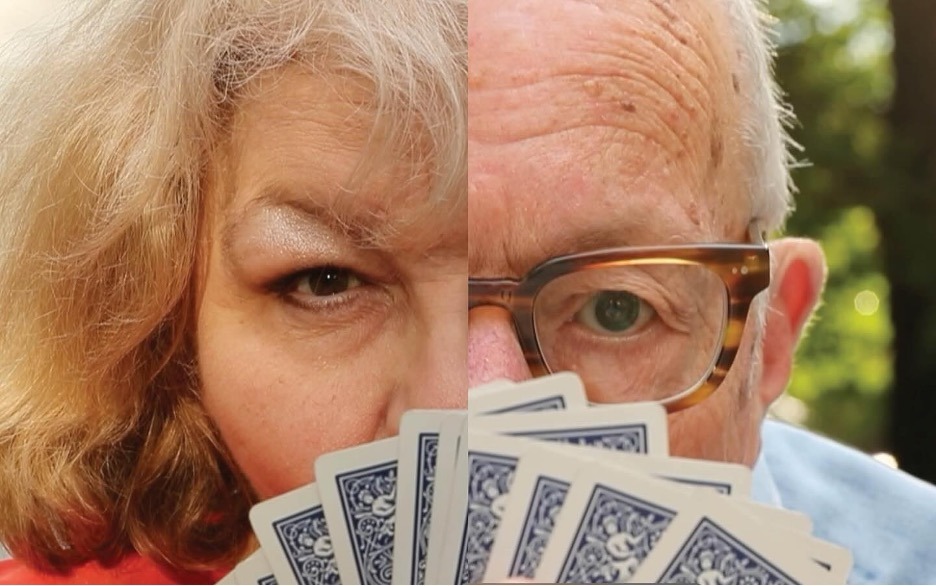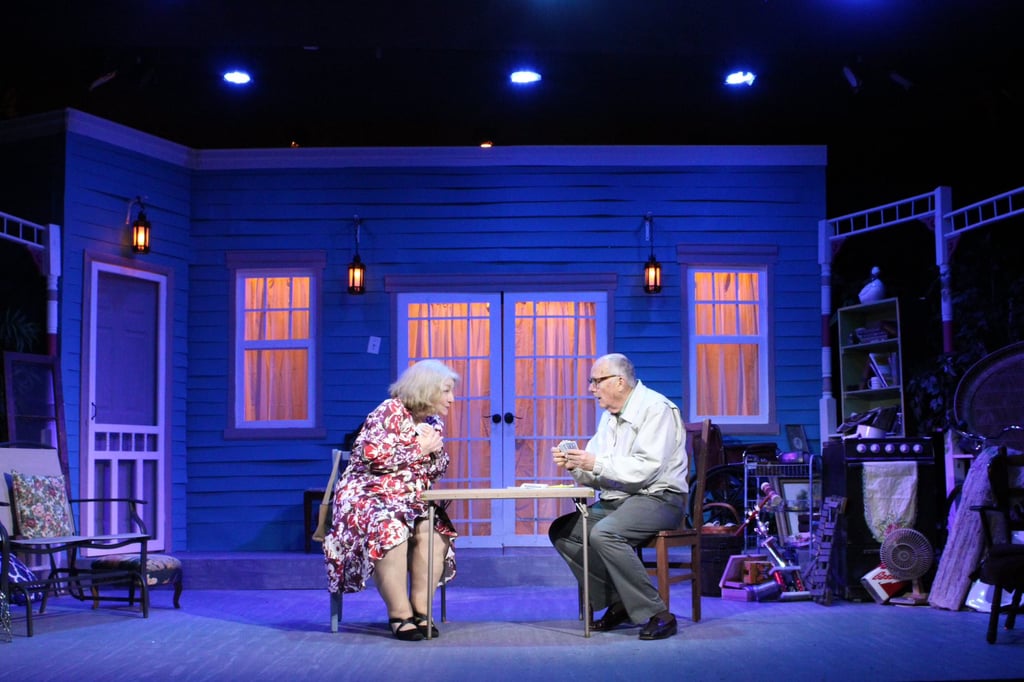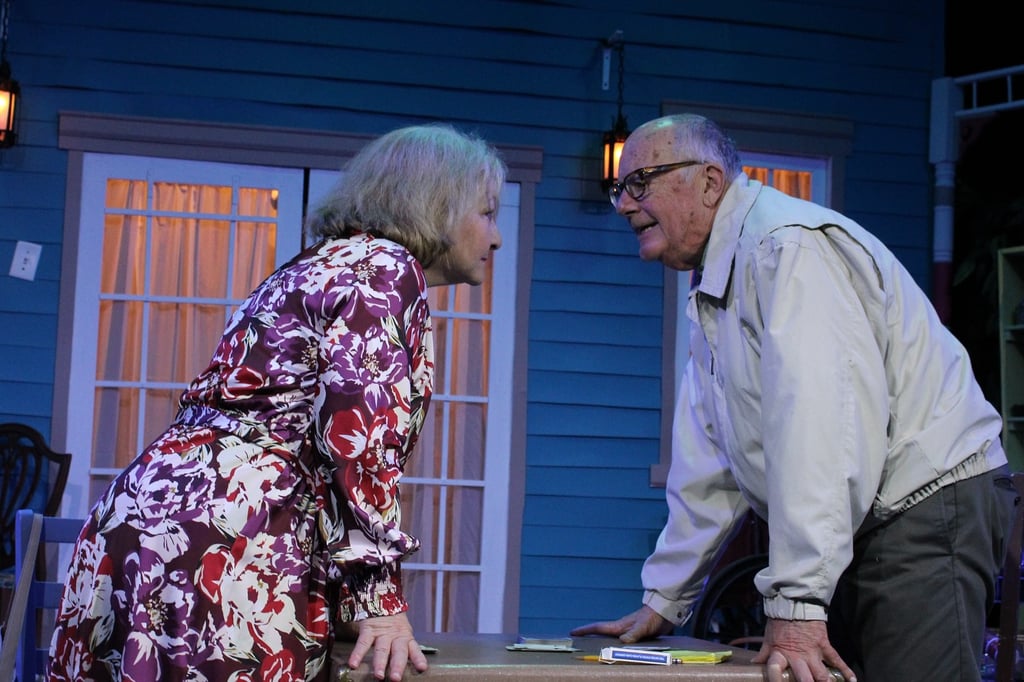“The Gin Game” Uses Cards as a Metaphor for Life
This charming hidden gem walks the fine line between light-hearted humor and the weight of aging, the push and pull of repetition and theatrical excitement, and the thought-provoking metaphor of life as a card game, captured in an absurd and escalating card-table quarrel.
By Mingsi Ma
Directed by Joe Eberle, playwright D.L. Coburn’s 1978 Pulitzer Prize for Drama-winning play The Gin Game revives at the South Park Theatre from May 28 to June 14. This charming hidden gem walks the fine line between light-hearted humor and the weight of aging, the push and pull of repetition and theatrical excitement, and the thought-provoking metaphor of life as a card game, captured in an absurd and escalating card-table quarrel.
On the back porch of the nursing home, new residents Weller and Fonsia, played by Mark Yochum and Marianne Shaffer, get to know one another by playing gin rummy. The porch feels especially quiet compared to the lively interior of the nursing home, which is often filled with music, dance, and entertainment. Neither Weller nor Fonsia openly admits to feeling lonely, but the absence of friends or family on visitor’s day quietly speaks volumes.
I lost track of how many times the card deck was shuffled and distributed between Weller and Fonsia throughout the play. “One, one, two, two, three, three…” The voice of Weller counting the cards for each other stuck in my mind. The full play unfolds through their ongoing games, as Weller cynically and hilariously roasts other residents, complains that “adults talk to [him] like a child,” and rages over not winning a single game, all while Fonsia has outrageous luck and keeps calling “gin” one after another.
Thanks to the performances of Yochum and Shaffer, along with Eberle’s deft direction, the play has the right tempo and energy to keep the audience engaged. Despite the repeating, rounds after rounds of gin, the performance stays sharp and smoothly advances the story like a well-strategized card game, with each move circling back with greater theatrical tension and meaning.
I had so many good laughs at the theater. Yochum gives such an amazing performance. Whenever Weller draws a bad hand, the exaggerated frustration on his face and his clumsy body language never fail to make the audience laugh. His over-the-top non-verbal expressions turn a harmless little card game into a reckless outburst, reminding me of Mr. Bean’s physical comedy, especially when he licks his finger to flip the cards or leans back and raises eyebrows in frustration when upset by them. Yochum does a great job navigating anger and humor on stage. It would have been harsh to watch if it were all about slashing the anger onto the audience’s face, or too focused on making jokes and losing the momentum that advances the play through the repeated games.





